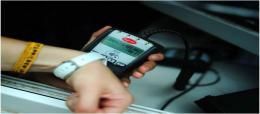Mobile Wallets - How Much Will Individual Retailers Get To Control
Dec 12, 2013
Posted by: David
So the headline numbers have been published: ‘The Global Mobile Wallet Market is Expected to Reach $5,250 Billion by 2020 - Allied Market Research’. And so have the headlines about Starbucks: ‘More than 10% of Starbucks U.S. transactions are now made with a mobile device. The Starbucks mobile app processes more than 4.5 million payments a week.’
Is Starbucks an exception, in the wallet wars that are coming who will be the winner, existing schemes, new wallets or single/multi retailer wallets? In the US we have seen multi-retailer wallets such as MCX launch, although only in the US. We are also seeing new players like ISIS and of course a host of Mobile Network Operators coming to the market with their offering.
Starbucks is often held aloft as a beacon as to ‘what a retailer can create’ by many people; much as MPesa in Kenya is held aloft as beacon as to what Mobile Money can deliver. Certainly the Starbucks solution is great, no more digging for change or searching for lost gift cards at Starbucks. The retailer’s mobile app offers customers free rewards for using the app to prepay for future coffee purchases by loading a mobile gift card, completing purchases in-store and send e-gift certificates to others through the app. Users can also find stores using a phone’s GPS, keep track of favourite drinks, view store hours and see menus. The app was created to reduce in-store waiting time, resulting in higher average tickets and to integrate their loyalty program on mobile and social media and it has certainly done all this.
But in a recent article I saw posted on ‘ten great examples of mobile use in retail from around the world’ - listed below - I note that not one of them actually uses a mobile wallet by a retailer to make the payment, in fact most did not use a payment capability at all within them and those that did reverted to the tried and tested providers:
Neiman Marcus Service: The app provides customers with the ability to personalise the in-store shopping'experience' by bookmarking certain items, and connecting with sales staff.
Pizza Express: The app allows the user to pay by PayPal in store rather than waiting for the waiter.
B&Q: Offers exclusive discounts on various products.
Meatpack: Meatpack is a shoe store in Guatemala and uses GPS technology to detect users of its app when they were in competitor stores, before sending them a message with a discount. It would start at 99% and drop by 1% every second. So, the faster users got to a store, the better the discount.
Walmart: Scan & Go, a feature on the Walmart app, allows users to scan merchandise in certain stores and pay using normal means at a self-checkout counter.
Target: The app has some useful features which are designed to encourage people into stores and make their experience more enjoyable including offers.
Amazon: Very strong app for shopping with an easy payment (account and payment details are stored so no awkward data entry), synchronised shopping baskets across devices, and a barcode scanner for quick price comparison; but still using existing payment solutions.
Moosejaw: Staff re POS enabled to take card payments on MPos in store with them seeing up to 70% of in-store transactions taking place via the iPod touch devices
Carrefour: French retailer Carrefour recently introduced a mobile app designed to enhance the in-store experience for the Chinese market. The app uses location sensing technology, a social shopping list, and an ad system that enables retailers to engage with their customers while in store.
Parkway Parade/ Sprooki: Parkway Parade is a shopping mall. Customers receive proximity-based alerts of the shopping mall then as well as receiving alerts and browsing products and offers, customers can purchase the products and services on the spot, through their phone and redeem immediately at participating stores, using traditional payment mechanisms
So rather than Starbucks being the example for others to follow, perhaps Starbucks should be recognised as whilst not unique, one of only a few retail businesses for whom a dedicated mobile wallet just for themselves is worthwhile. If we consider what the Starbucks business it has three key points about it;
- Low value transactions, typically sub $5/£7.5
- High Frequency, some people I know go there two, three four times a day
- Highly loyal customer base
The key question is how many wallets will a consumer want, how many different places will they want to pre-load their money – only to find perhaps that the outlet they want to go to that day they do not have enough money pre-loaded on as it is spread around all their other wallets. After all in today’s economy where money is tight for most people how many consumers want their money spread around the place limiting where they can spend it.
And this in Polymath’s view is the crux of the issue. Consumers do not mind pre-loading a wallet they use at least once every day if not more like a Starbucks, but will consumers want to load all of these single retail wallets and end up with money spread around like confetti. Consumers yes want ease and speed of checkout, but they also want acceptance. A simple/single solution they can use everywhere. Visa/MasterCard and to some extend brands like Amex and Discover have realised this and spend a lot of time ensuring customers can use their product wherever they need. I know for one searching through twenty wallets or so to find how much I have on each one at the end of the month, to work out where I can go and eat is not my idea of fun. Just give me a single wallet I can use where I want, yes make it simple, make it quick, but also make it accepted everywhere.
Cashless Stadiums, Events & Festivals

A new global review of cashless stadiums both open and closed loop. A look at the recent open loop trials at festivals in Europe.
Outsource Review

A key question many brands ask as their initial prepaid card contract comes up for review is ‘Have we got the best deal?’ Polymath Consulting's structured review process can help ensure you are getting the best deal or find you the best solution if just launching.
0 responses
You must be logged in to submit comments.